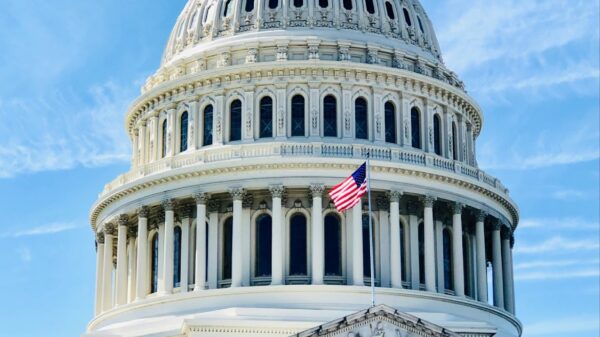The Supreme Court affirmed a lower court’s ruling on Oct. 4 stating that D.C. residents will not be entitled to representation in the House of Representatives because they do not live in a state.
The case was brought forth by residents of D.C. as they sought out full voting rights in the House of Representatives, calling their denial of representation in Congress a violation of their Constitutional rights.
Referred to as Castañon v. United States, this decision was defended by Supreme Court Justices Clarence Thomas and Neil Gorsuch by citing previous statehood case Adams v. Clinton and a lack of jurisdiction.
Congresswoman Eleanor Holmes remains the sole representative in the federal government for D.C. as a non-voting member of the House of Representatives. Holmes is a non-voting member alongside representatives from American Samoa, Guam, Northern Mariana Islands, the U.S. Virgin Islands and Puerto Rico.
Holmes has the power to introduce bills and speak on the U.S. House floor; however, she is not allowed to vote on proposed legislation— even if she is the one who proposed it. Other state governors have the power to call on their National Guards in emergencies. Holmes’ request of the D.C. National Guard is required to go through the president, this was the protocol Holmes had to follow for the insurrection of the Capitol on Jan. 6. It demonstrates her limited powers.
“I am disappointed that the Supreme Court today summarily affirmed a three-judge panel’s ruling that D.C. residents do not have a constitutional right to voting representation in the House,” Norton said in a press release shortly after the ruling.
“However, the ruling has no bearing on the constitutionality of D.C. statehood, which would give D.C. residents voting representation in the House and Senate and full control over their local affairs. In fact, the three-judge panel expressly referred to statehood as a remedy for D.C. residents,” Holmes said.
The Congresswoman seemed unphased by the roadblock as her track record reflects unprecedented progress for cases of statehood. Earlier this year, her Washington, D.C. Admission Act, commonly known as “H.R 51,” which proposed to admit the Commonwealth as the 51st state, passed with a vote of 216 to 208. Moreover, earlier this year, Press Secretary Jen Psaki confirmed President Biden’s stance on D.C. statehood.
“He believes they deserve representation; that’s why he supports D.C. statehood,” Psaki said during a White House press briefing.
After Psaki’s comments, D.C. Mayor Muriel Bowser took to her personal Twitter account.
“Let’s get it done Mr. President. #DCStatehood,” Bowser tweeted.
D.C. is often referred to as “Chocolate City,” as it was the nation’s first major majority-Black city. Recent U.S Census data show Black Americans representing roughly 46% of D.C.’s population.
With questions being raised as to why D.C. statehood has been so ill-received by Republican members of Congress, The Washington Post has stated that these instances effectively are, “…pointing to the lack of enfranchisement in the plurality-Black city as yet another way the Black vote has been suppressed”.
As the fight for D.C. statehood continues, tax-paying residents must live with the inability to have any representation in Congress or be able to elect Supreme Court officials.
It is unlikely that H.R 51 will be discussed on the Senate floor due to Sen. Joe Manchin expressing an unwillingness to put this bill to a vote, as he is one of the few Democrats who do not support D.C. statehood. He has echoed Republican advice that supporters of the Bill ought to motion to make the change as an amendment to the Constitution or that D.C.’s land be returned to Maryland instead of continuing the long fight for D.C. statehood.
Copy edited by Jasper Smith































